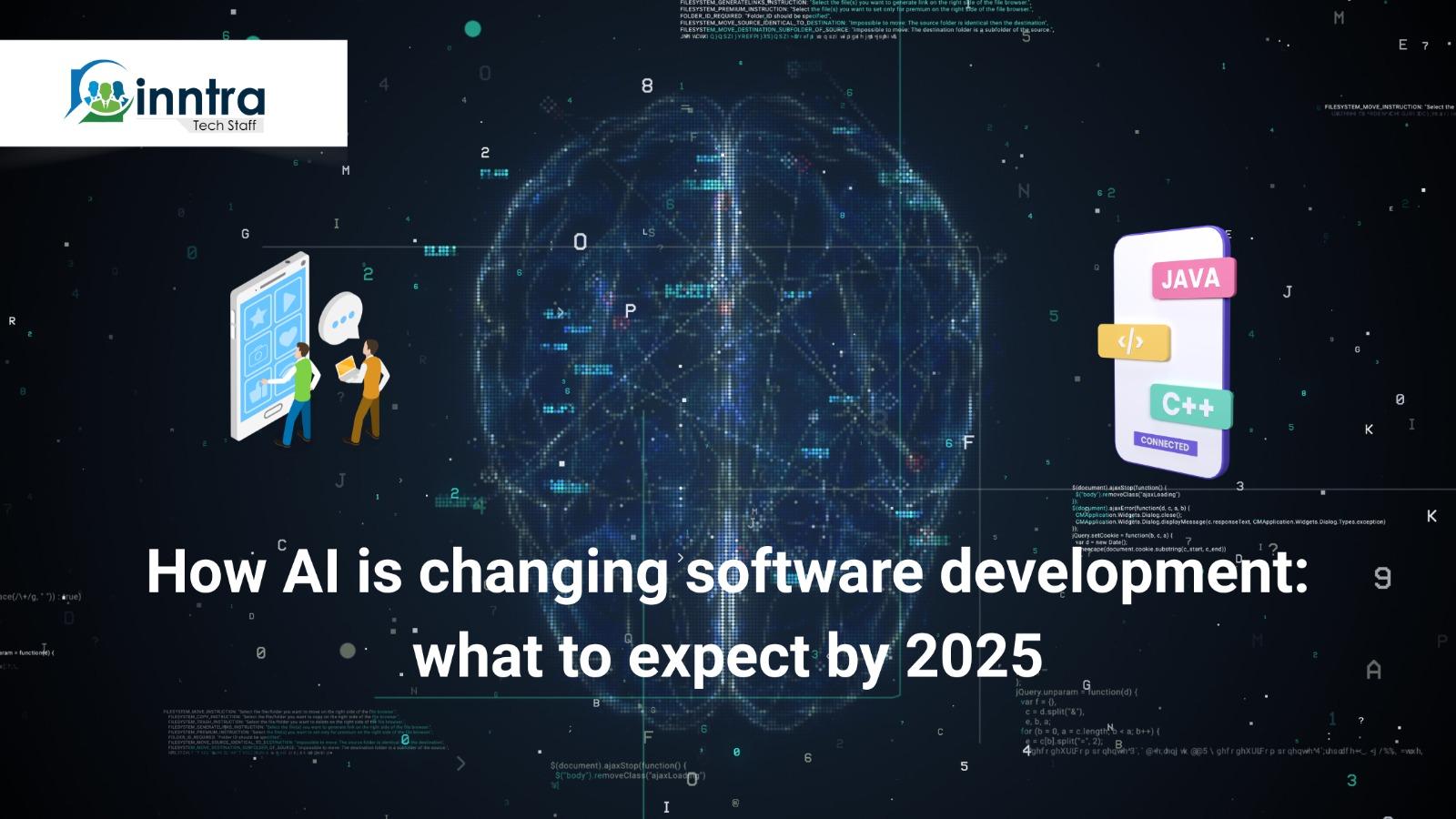How AI is Changing Software Development: What to Expect by 2025

Gone are the days when artificial intelligence was a futuristic concept that software engineers, however fancifully, dabbled with. Artificial intelligence is now a contemporary reality, with growing implications for the software engineering discipline.
The presence of AI in software development is growing exponentially, thus impacting everything from coding practices to deployment times. As we near 2025, companies and teams need to envision reconstructions of how they build and maintain modern digital systems.
The Evolution of AI in Software Development
This is a momentous time to be a developer, as the last few years have ushered in a new era. Tools that harness machine learning are effectively used to assist in writing code, facilitating pull request reviews, and predicting potential system failures.
AI offers an extension of the well-known concept of rapid iteration, through automation of many types of innovation, and provides tremendous opportunities to increase developer productivity.
When the time arrives to reflect on this period, GitHub Copilot and other examples will highlight how quickly engineers can adapt to new concepts about how to learn and write computer code while being unaware they are learning.
Opportunities and Benefits of AI-Powered Development
AI is changing how we approach the software development lifecycle, eradicating bottlenecks and unleashing productivity. Intelligent debugging tools can catch problems early on, before they become bigger issues.
AI models can also help enforce code quality across a wide array of absent physical development teams, simply by evaluating patterns in committed code and developing suggestions for best practices. Most importantly, development teams now have the option to code faster and smarter.
AI/ML capabilities integrated into the IDE (intelligent development environment) can adopt a developer's unique coding style, report on library history relevant to development, and even auto-generate unit tests.
Companies are now releasing products, reducing defects, and reducing maintenance costs, due to the leverage efficiencies available through AI in software development.
More available engineers are doing less work with a better chance of delivering a more complete and safer product on time. I've always been focused on the concept of time-to-market and a better experience for users.
Challenges and Drawbacks
-
Code Hallucination: AI models may generate code that looks correct but contains hidden errors or security flaws. Developers must validate all outputs before implementation.
-
Security Vulnerabilities: Without proper oversight, AI-generated code can introduce bugs that lead to performance issues or system breaches.
-
Lack of Explainability: AI can produce code that's difficult for humans to interpret, especially in critical systems where transparency is essential.
-
Accountability Concerns: When code fails, it’s unclear who is responsible—the developer or the AI. Clear ownership is necessary in enterprise-grade software.
-
Manual Verification Required: Developers still need to review, refactor, and test every AI-assisted suggestion to ensure it meets standards.
-
Legal and Licensing Risks: AI-generated code may raise intellectual property concerns, including licensing conflicts and unclear ownership rights.
Predictions for 2025 and Beyond
AI is advancing beyond code generation. New platforms are spawning company-wide autonomous software agents that can plan the entire software development life cycle through minimal human intervention. These agents will draw requirements, code applications, test software, and deploy them.
Companies like Cognition Labs have already demonstrated this technological progression when they announced Devin—a fully autonomous AI software engineer who can run Git commands, debug code, and manage tickets.
This is an experimental tool—however, it demonstrates what can happen.
Moreover, we will see AI integrated with future edge computing platforms, IoT platforms, and decentralized systems.
The real future of coding with AIs includes the utilization of multi-agent systems that figure out ways to collaborate in real time, draw capabilities from existing platforms, and customize languages, frameworks, and applications depending on the user's demands.
By 2025, if you look at AI's overall influence, it will alter the way code is written, as well as how software development teams will need to form, scale, and innovate.
The Future of Coding Starts Now
AI is changing the entire software development business—from smart code generation and predictive applications deployment. Essentially for the foreseeable future, AI will only increase developers' ability to produce efficient code at exceedingly fast times.
Developers will still need to measure their outputs and test them to verify the working of a system. Developers must maintain awareness of security and compliance risks before deploying their applications to production. Finally, companies will need to adapt their ways of hiring software development talent to prepare for this new future.
There will be early adopters who will win the next transformation of innovation. The rest will be left behind by the competition.
Work with Cinntra Tech Staff for building AI-fueled development teams, or digital solutions ready for the future. Enjoy the future of coding now.
- Art
- Causes
- Crafts
- Dance
- Drinks
- Film
- Fitness
- Food
- Jogos
- Gardening
- Health
- Início
- Literature
- Music
- Networking
- Outro
- Party
- Religion
- Shopping
- Sports
- Theater
- Wellness



